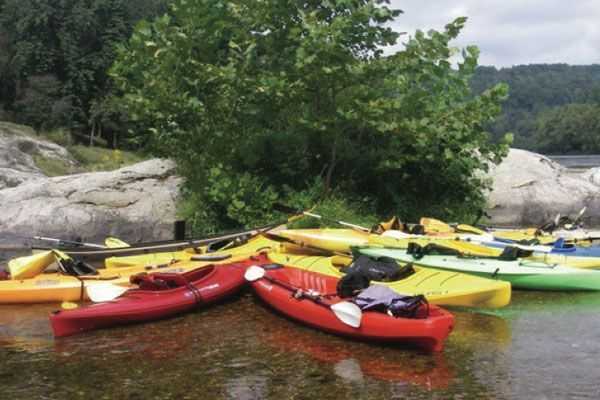Personal watercraft (canoes, kayaks, “toons,” SUPs etc.) are some of the best ways to expand your fishing adventures into new waters. They open up new territory that may not be possible to reach easily by any other method. Some advance research and preparation will help pick the best craft for you and help you enjoy it safely.
Each of these crafts has their pros and cons: canoes are extremely versatile and can carry one, two or more people and their gear. Yaks are low and sleek and offer minimal sail area when paddling open water. Personal pontoons can be very stable and comfortable. Stand up paddleboats can offer a new adventure in shallow water.
Regardless which craft you think may be right for you, there are some common denominators to consider when making your choice. Unless you plan on buying more than one type of boat, it’s worth it to consider a number of factors and your primary uses.
Price is certainly an important consideration. Personal watercraft can range in price starting at around $200 to several thousand dollars. An expensive boat that is not the best for you and your planned use may prove to be an even bigger loss on the used boat market.
A critical consideration is the actual weight of the boat. Kayaks are not necessarily light unless they are short. It’s important to know if you can actually lift the boat and load it onto your car or trailer. Boats over 60 lbs. are getting pretty heavy for a lot of folks, especially if they are trying to get it on top of their car or SUV. I routinely hear folks say they bought a great boat…but it turned out to be too heavy and awkward for them to handle alone. Research how you can easily load and transport your new watercraft.
Does your intended boat fit you or are your height, leg length, weight, and foot size going to result in an awkward, unsafe situation, with uncomfortable posture and body position. Sit in it, or on it…and try it before you buy it is good advice.
Get a good lifejacket (PFD), one that fits and is comfortable so you don’t mind keeping it on. Wearing your lifejacket is just simple, common sense and cheap life insurance, regardless of your swimming ability, fitness, and experience on the water. Accidents happen that catch the best of us by surprise. Know what to do if you capsize. There’s a lot of information explaining rescue techniques for personal watercraft and solo rescue techniques in books, magazines and on the internet. Are you educated, capable and prepared to actually do them? Before striking out on that first adventure in your new boat, make sure you’ve done some research and practice on rescue technique and survival. Pre-planning and practice can help make a bad, uncomfortable experience from becoming one with tragic consequences.
Keep your gear to a minimum when getting started and make sure it is secured or tethered to the boat. There are countless instances where gear has drifted away or sunk to the depths, never to be recovered again. If you don’t have a spare paddle (or extra oar) aboard, you don’t want to lose your only one. A dropped paddle or lost oar can easily be separated from the paddler due to wind and current. Keep it tethered to the boat or have a spare, or both.
Are your valuables and electronics protected? There are plenty of waterproof containers and bags on the market, but they don’t work unless they are sealed and secured. Some can allow continued use of electronics; others are just “bombproof” storage. A sealed case or bag is of little value if it leaks, drifts away or gets carried off downstream.
An emergency kit is pretty cheap insurance in case there are problems. This would include a whistle, signaling mirror and small, waterproof flashlight. These are easily stowed in the pocket of a lifejacket, out of the way until you really need them. In addition, a small, waterproof VHF Marine Radio can be a critical resource for communications on larger lakes and especially in saltwater areas. Cell phones may be fine in some situations, but an emergency call on Channel 16 VHF is broadcast to many listeners.
Carry a spare car key, or more than one. This would seem to be an obvious precaution, but there are many stories of fishermen and boaters losing their keys. One or two spares, secured in different locations on your person, and on your car, can be a real convenience and avoid some major hassles and headaches.
There’s plenty more to know to be better prepared. Do your homework now, and your time on the water will be more enjoyable and safer.
[easy-social-share]
